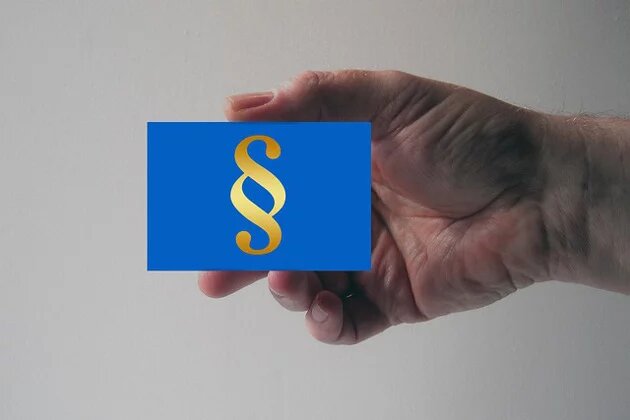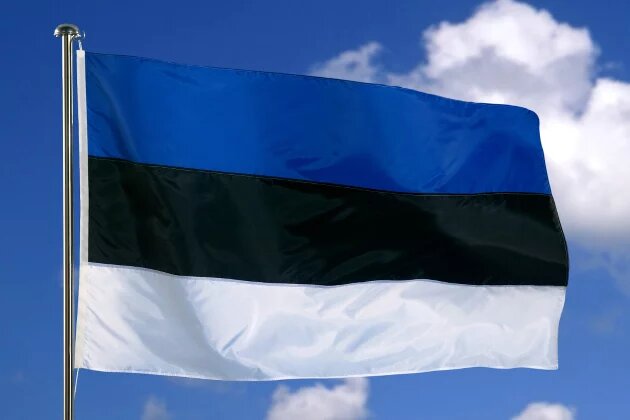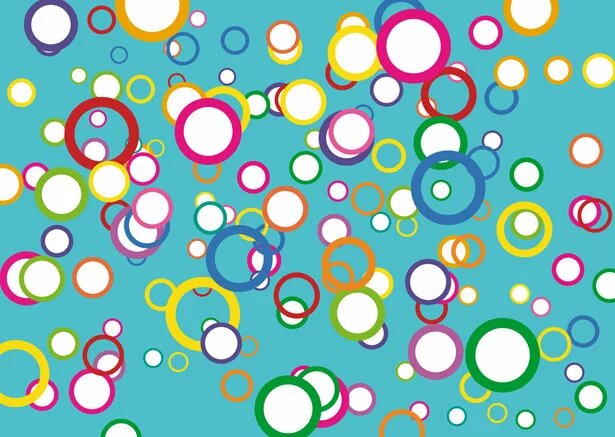

The gender-political situation in Estonia
The legal situation:
-
Legislated gender quota with a focus on politics and business
-
Other laws and legislative regulations and government programmes
Protagonists:
Academia
Brief description and evaluation
Before the process of political transformation at the end of the 1990s, gender equality was not an issue or was, unlike today, not an object for analysis. Gender equality simply meant having both women and men in full-time employment. In the private sphere though, the traditional roles of the mother and the father persisted. Estonian women were (and remain so until today) doubly burdened by society: they are full-time employees and at the same time they are fully responsible for family care work.
Estonia became a member of the EU in 2004. Equal opportunities legislation at the national, political level only became institutionalised through European and international resources. A modern equal opportunities law was passed, even though this does not necessarily mean it is actually implemented in society and lived by people. On the contrary, it seems that in Estonia there is a counter-trend back to traditional gender roles. A division of labour based on gender stereotypes is visible today even in a segregation of the labour market based on gender. Moreover, Estonia is the country with the highest gender pay gap in Europe. See: The Gender Pay Gap in Europe from a Legal Perspective (PDF, 280 pages, 8 MB, English).
Women are more willing to stay at home and experience this as a new freedom contrasting with the Soviet ideal of the woman in full employment.
Legal situation
Current situation
Estonia is a signatory to the Human Rights Convention and has therefore agreed to eliminate all kinds of discrimination. Furthermore, Estonia has signed the convention of the Council of Europe. As an EU member, Estonia must respect the Amsterdam treaty and create structures for equal opportunities. Since the middle of the 1990s, the country has participated in different EU action plans.
The overall legal framework implementing the EU law on gender equality acquis is satisfactory, and Estonia stands out by virtue of some welcome innovations such as the parental benefit paid from the state budget. Nonetheless, certain weaknesses can be identified in terms of the full transposition of the requirements of the directives. For example harassment on the grounds of sex is not regulated under Estonian law at present. The transposition of Directive 2004/113/EC could also be more complete in some aspects. To this end, a draft act to amend the GEA is pending in Parliament in order to bring the laws into conformity with EU requirements. Overall, the obligation to transpose EU gender equality directives and in particular the creation of the post of Gender Equality and Equal Treatment Commissioner have increased the awareness of the general public concerning discrimination issues.
Source:
-
Gender Equality Law in 30 European Countries 2009 update, p. 36 (PDF, 144 pages, 3.3 MB)
“On 24 September 2009, Parliament adopted the Act to amend the Gender Equality Act (317 UA). The amendments took effect on 23 October 2009. The following amendments were made:
-
The definitions of direct and indirect discrimination and harassment were brought in line with the definitions in the EU directives;
-
The concept of harassment on the grounds of sex was introduced;
-
Prohibition of victimisation was extended beyond employment;
-
The following issues concerning gender discrimination with regard to access to goods and services are now regulated: an exemption concerning sex-segregated services was introduced; the right to request compensation is extended beyond the field of employment; an obligation to provide explanation for less favourable treatment for service providers was introduced;
-
A prohibition for employers or recruitment agencies to request family-related data was introduced;
-
An obligation to involve non-governmental organisations in the promotion of gender equality is now included.”
Source:
-
Albi, Anneli: Estland, in: European Gender Equality Law Review 2010-1, pp. 65 – 68 (PDF, 169 pages, 800 KB)
Anti-discrimination legislation
On 20 November 2009 the European Commission decided to withdraw the case filed at the European Court of Justice against Estonia for not transposing EU directives prohibiting gender discrimination in the access to and supply of goods and services (council directive 2004/113/EC), because Estonia had since implemented changes to its equal opportunities law and thereby incorporated the council directive into national law.
The Commission had initiated infringement proceedings against Estonia before the European Court of Justice because the country failed to notify on all the necessary measures for the transposition of the directive according to article 226 EC.
This directive prohibits gender discrimination outside of the labour market, indirect and direct gender discrimination, as well as harassment and sexual harassment. The directive is applicable to goods and services that are available to the public and offered outside of the private and family sphere. Nonetheless, it does not apply to media and advertisement content, or for the areas of education, employment and work. It does cover such areas as traffic, housing, hotels, healthcare and the banking and insurance industry.
Source:
Legislated gender quota with a focus on politics and business
There are no regulations.
Other laws and legislative regulations and government programmes
Estonian Ministry of Social Affairs/Sotsiaalministeerium
The Estonian Ministry of Social Affairs/Sotsiaalministeerium published a document on the programme to promote equality between the sexes Promotion of gender equality (PDF, 36 pages, 2.3 MB, in Estonian) between 2008 and 2010. It is only available in Estonian. The Estonian word for gender is “sugu”.
Estonia has created a National Action Plan For Equality (PDF, 20 pages, 850 KB, English).
The Estonian foreign ministry
The English information related to gender issues on this website are more extensive. There is an action plan to incorporate UN resolution 1325 “Women, Peace and Security” into national legislation between 2010 and 2014. It is based on the idea that conflicts should be resolved by systematically taking into account the gender perspective, that is, the role of women in the building of peace. With this action plan, Estonia aims to include the gender perspective in international peace-keeping and development cooperation. These are the foreign ministry’s future priorities.
Source:
It should be mentioned that in the wake of political developments in the last years in Estonia, the state budget has decreased dramatically and funds for numerous state agencies have been cut.
Source:
-
Albi, Anneli: Estland, in: European Gender Equality Law Review 2010-1, pp. 65 – 68 (PDF, 169 pages, 800 KB)
The Estonian government consists of a coalition of centre and conservative parties (the reform party and IRL – a union of Pro Patria and Res Publica). Currently the 12th government since independence in 1991 is in office. All governments have up to now been united in their efforts towards an open market economy.
Elections will be held in Estonia in 2011. Next to equal opportunities an important issue at the moment therefore is Moscow’s support of opposition parties.
Protagonists
NGOs: political parties, civil society organisations
Estonian Women’s Associations Roundtable (EWAR)/ Eesti Naisteühenduste Ümarlaud
Estonian Women’s Associations Roundtable (EWAR) is an open and democratic women’s network based on co-operation. It aims to develop joint positions on important social questions affecting women. Moreover, this women’s organisation aims to promote participative democracy and equality between men and women.
Specific issues the association deals with are violence against women, the gender pay gap, the lack of participation of men in the rearing of children and the low number of women in top positions. They organise projects, solidarity actions, and protests.
Contact:
Narva mnt 25-410 Tallinn 10120
Email enu@enu.ee
Tel.: +3725265927, eha.reitelmann@enu.ee
Source:
-
Eesti Naisteühenduste Ümarlaud (Estonian, some sections in English)
Estonian Association of Business and Professional Women/Eesti Ettevõtlike Naiste Assotsiatsioon (EENA)
The non-profit organisation EENA was founded in 1992 with the goal of promoting co-operation and the exchange of ideas and opinions among employed women. It aims to strengthen women’s potential at work, in business, and in leading positions through mentoring, networking, competency building, advocacy and by strengthening projects regionally, nationally, and internationally.
Contact:
info@bpw-estonia.ee
Source:
-
BPW - Estonia (Estonian)
ETNA Estonia
The NGO ETNA Estonia seeks to bring together women from all parts of Estonia interested in starting new businesses. Their focus lies on balancing rural and urban development. For example, ETNA aims to support the founding of companies by women in rural areas, and to build, develop and co-ordinate networks, always guided by the principles of gender equality and gender mainstreaming.
Contact:
Address: Jüri St 12, Võru 65605, ESTONIA
Tel.: +(372) 56 08 77 88
Fax: +(372) 7339 833
Email: fem[at]fem.ee
Source:
-
Etna (Estonian)
ENUT
The Estonian Women’s Studies and Resource Centre/ Eesti Naisuurimus- ja Teabekeskus
This non-governmental organisation developed out of a grassroots movement in the aim of empowering women. It offers women a specialised library on issues relating to women and gender. The organisation collects and distributes information on gender issues. It strengthens gender consciousness through seminars, conferences and publications. Furthermore, the organisation promotes, co-ordinates and initiates activities promoting gender equality.
Contact:
Narva mnt. 25-410
10120 Tallinn
Tel./ Fax: (372) 6409 173
enut@enut.ee
Source:
-
ENUT - Eesti Naisuurimus- ja Teabekeskus (Estonian and English)
Academia
Universities
Centre for Gender Studies at Tallinn University
Unfortunately no content, activities or publications in English, only the contact details:
Leena Kurvet-Käosaar
Tel.: +372 619 9881
Email: lkk [at] tlu.ee
Source:
Unit of Gender Studies (Institute of Sociology and Social Policy)
The website is in both English and Estonian. Nonetheless, both versions are out of date. The most recent news in Estonian are from 2008 and the last update of the website was in 2009.
Contact:
University of Tartu
78-219 Tiigi St., 50410 Tartu, ESTONIA
Tel.: +372 7 375930
Email: gender@ut.ee
Source:
Availability of sources
There is an average amount of sources. Most of the key documents on gender equality policies are only available in Estonian. The central search word for sex in the sense of gender is thereby the Estonian word “Sugu”. Hardly anything is found with English search words.
Citation of relevant sources
Website addresses were mentioned directly in the context.
-
Gender Equality and Inequality: Attitudes and Situation in Estonia in 2009 (PDF, 55 pages, 1.4 MB, English)
-
Sacha Prechal and Susanne Burri; Gender Equality Law in 30 European Countries 2009 update (PDF, 208 pages, 3.3 MB)
-
Prechal/Burri; EU Rules on Gender Equality: How are they transposed into national law? (PDF, 48 pages, 1.4 MB)
-
Committee on the Elimination of Discrimination against Women, Fourth periodic report of States parties; Estonia (PDF, 95 pages, 575KB, English)
-
Booklet on equal opportunities (in Estonian): Men and women „Equal rights, equal duties – An overview on gender specific equal opportunities legislation“ (PDF, 32 pages, 2.2 MB)
This study was conducted by Tanja Berger und Pamela Dorsch and comissioned by the Gunda Werner Institute of the Heinrich Böll Foundation in 2010.
All images, except marked otherwise Public Domain CC0

